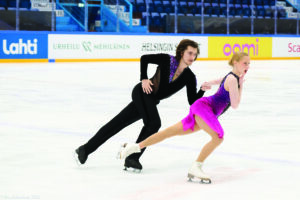Once again, Mike Hume answers your most pressing sports questions as he delves his magical mailbag.
Mike,
Now that we’re nearing the end of the Olympics, what are your general impressions about the Games thus far?
Juan-Antonio
The Beijing Games have thus far gone extremely well in my mind. Whether the smog, protesters and other factors deriding China’s reputation before the Olympics have dissipated or news outlets are content to give them a pass while reporting from Chinese soil, the main storylines have featured the athletes – well, one of them at least.
With an unprecedented eight gold medals, Michael Phelps is clearly the premiere story of the Olympics, but I think NBC has skewed too far in his direction. Not only were foreign athletes, many of whom train in the U.S. and compete at American colleges, largely ignored by the network, but so too were many Americans.
Track star Tyson Gay was an afterthought, despite competing in what was probably the fastest field ever for an Olympic 100m. Even Jamaican Usain Bolt, who looked as if he could have outrun a coked-up cheetah – driving a Ferrari – remains a bit of a mystery. Maybe I missed the in depth profile piece on the Jamaican sprinter who is now the undisputed fastest man on the planet, but I’ve watched more than 60 hours of Olympics coverage, including just about every night in prime time and I heard zero about him prior to the 100m.
Meanwhile, we’ve had Chris Collinsworth hugging Michael Phelps’s mother, Tom Brokaw inquiring about her text messaging habits and Andrea Kremer asking Brendan Hansen, Phelps’s teammate on the 4×100 medley relay team, to put Phelps’s performance in context.
Yes, Phelps’s achievement is unparalleled, but the lack of information on other athletes has left a lot of people with few storylines to follow now that Phelps’s quest is completed. NBC used to profile a wide array of athletes from around the world, with those pieces detailing rivalries and setting up future competitions. Now, we’re only briefly introduced to them by play-by-play announcers and color analysts dropping little tidbits to the audience as often as they can during the events. It’s a weak substitute.
The coverage hasn’t been altogether bad, but the print media is vastly out pacing the network with sole broadcasting rights to the Games. NBC certainly hasn’t put forth the same kind of quality broadcasts that usually earn Bob Costas an Emmy for his Olympic coverage.
Mr. Hume,
She did it! She is Olympic Champion! Look at her! Yes! Yes! I’m still pumping my fist as I write this! I am so excited about Nastia Liukin’s gold medal. But what about the Chinese gymnastics team? Isn’t it terrible that they’re cheating by sending up underage gymnasts to compete?
Bouncing Bela
Here’s what I don’t like about the way this story has been covered. The basis for suggesting several of the Chinese female gymnasts are underage are the suspicions of American coach Marta Karolyi and a pair of Chinese news articles that contradict the International-Olympic-Committee-vetted ages of those gymnasts. The New York Times runs with it a day after the team competition and soon everyone is making blanket conclusions that the girls are underage.
Maybe they are, maybe they aren’t. Maybe one of the gymnasts was missing a baby tooth. Maybe she got into a bar fight. Maybe the Chinese newspapers made a mistake and printed inaccurate information – something to which the New York Times and any other newspaper can relate.
Accusing someone of cheating in the Olympics, or anywhere for that matter, is a tremendous charge that has the potential to mar a program or an individual for the long term (See: Jackson, Shoeless Joe). Such claims should be based on more than circumstantial evidence before they are made publicly.
And while we’re on the topic, I enjoyed Bela Karolyi’s geyser of emotion in the same way I enjoy Dick Vitale’s commentary. It’s fun, but it’s hard to take either completely seriously. If NBC wants Karolyi to offer analysis of the competition, then he needs to spread the praise around to the other competing teams, as Vitale does, and not just the American squad coached by his wife.
Mike,
Is Nationals’ GM Jim Bowden’s failure to sign first-round draft pick Aaron Crow as bad as it seems? At this rate, it feels like even I might win before the Nats take the pennant.
Teddy R.
In reading Bowden’s account of the failed signing process, it seems like there’s plenty of blame to go around. Crow’s agents didn’t seem to provide a lot of negotiating room for the Nationals, making it difficult for the parties to agree to terms ahead of the weekend deadline to sign picks. On the other hand, the Nats stood on their principle of paying what the market dictated, rather than caving to Crow’s asking price of $9 million that would have made him the highest-paid pick in the draft despite going at No. 9 overall.
On some level, it’s important to stick to your principles and not concede out of fear of not signing the pick. That said, ESPN’s Keith Law argues that Crow’s asking price was well known throughout baseball prior to the draft, and if the Nats had no intention of meeting that price, they should have selected another player. Both are sound arguments.
As compensation, the Nationals will get an additional pick, the 10th overall or “9B,” next year. It’s not a bad deal for the team, given that they will likely get two Top 10 talents, including the No. 1 overall pick. But will they have the money to sign both players? Or will financial restrictions – which weren’t supposed to be a factor with the team’s revenue stream from the new park – force them to pick lesser players with lesser contract demands?
Even if they can sign both, not inking Crow sets back the Nats’ rebuilding process. Crow, a pitcher who hits 98 mph on the radar gun, could have been in the team’s rotation by September and started on the big league roster next year.











